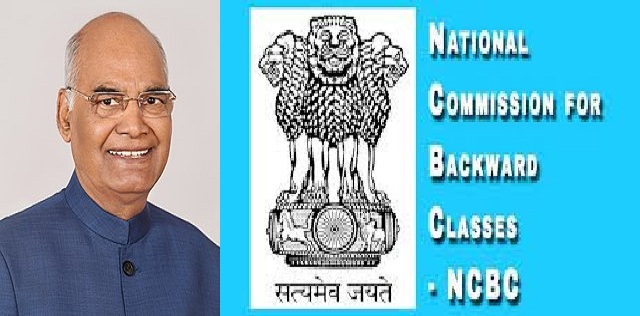- National Commission for Backward Classes is under the Ministry of Social Justice and Empowerment.
- It was constituted pursuant to the provisions of the National Commission for Backward Classes Act, 1993.
- Constitutional status: In 2017, a bill seeking to grant constitutional status to the National Commission for Backward Classes is scheduled to be passed in Parliament. The bill was passed by Lok Sabha in April 2017 and is waiting for the assent of the Rajya Sabha. The NCBC Bill, passed by Lok Sabha in 2017, will insert Article 338B.
- Indra Sawhney & Ors. Vs. Union of India: The commission was the outcome of Indra Sawhney & Ors. Vs. Union of India. The Supreme Court of India in its Judgement–directed the Government of India, State Governments and Union Territory Administrations to constitute a permanent body in the nature of a Commission or Tribunal for entertaining, examining and recommending upon requests for inclusion and complaints of over-inclusion and under-inclusion in the list of OBCs. The Supreme Court held that the Constitution recognised only social and educational — and not economic — backwardness

-
Composition:
-
The Act provides that the Commission shall consist of five Members:
- a Chairperson who is or has been a judge of the Supreme Court or of a High Court;
- a social scientist;
- two persons who have special knowledge in matters relating to backward classes; and
- a Member-Secretary, who is or has been an officer of the Central Government in the rank of a Secretary to the Government of India.
- Their term is of Three years.
-
Functions:
- The commission considers inclusions in and exclusions from the lists of communities notified as backward for the purpose of job reservations and tenders the needful advice to the Central Government
- National Commission for Backward Classes has not yet been empowered to look into the grievances of persons of Other Backward Classes.
- Report of Commission
- NCBC presents annual report to Central Government containing full account of its activities during previous year.
- The report is placed before each House of Parliament by Central Government, along with memorandum explaining action taken on advice tendered by Commission.
- The memorandum also contains reasons for non-acceptance of any such advice.
indian constitution is a total waste because constitution doest not identify economic backwardness because it accepts MANUSMRITI